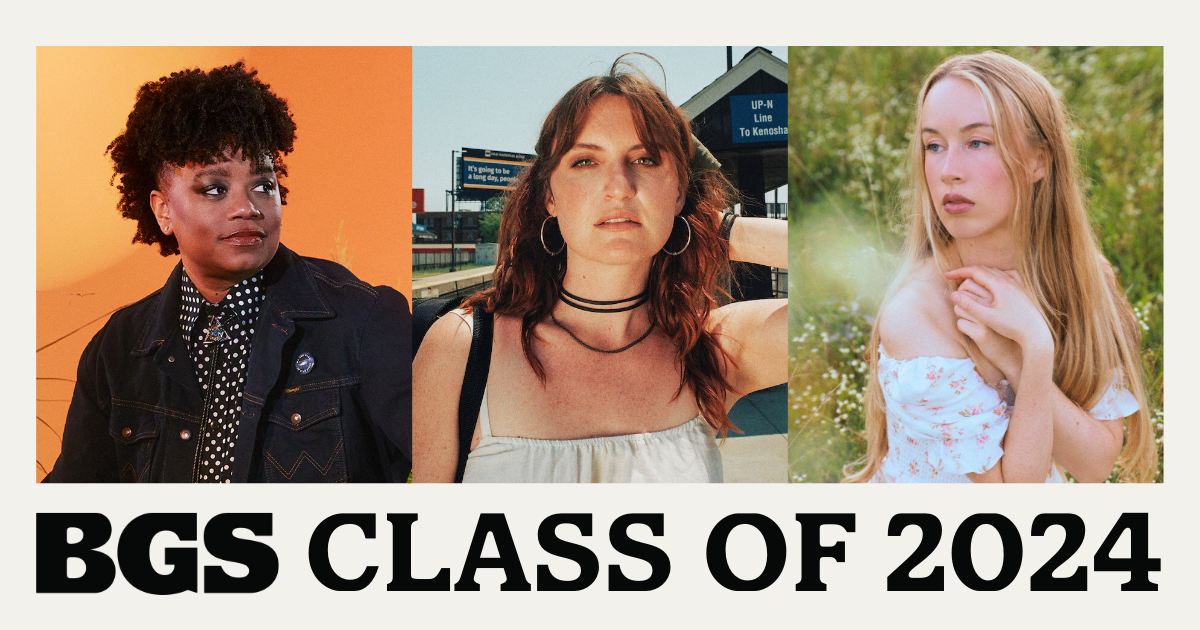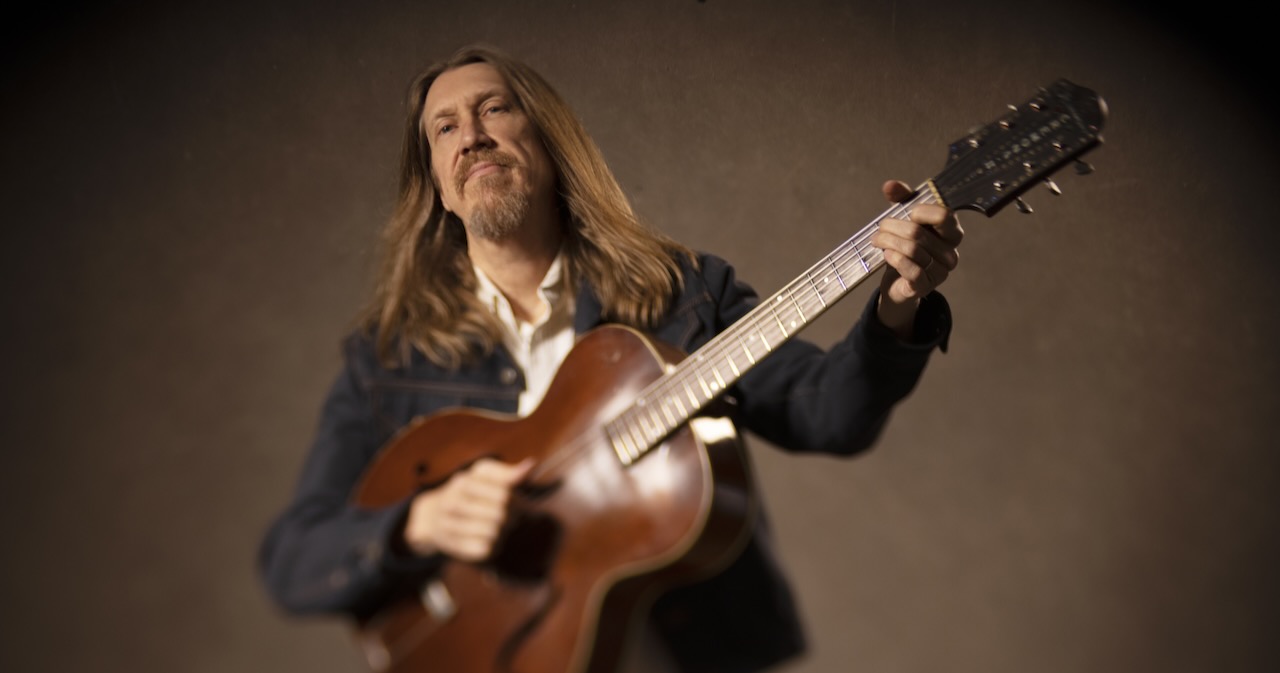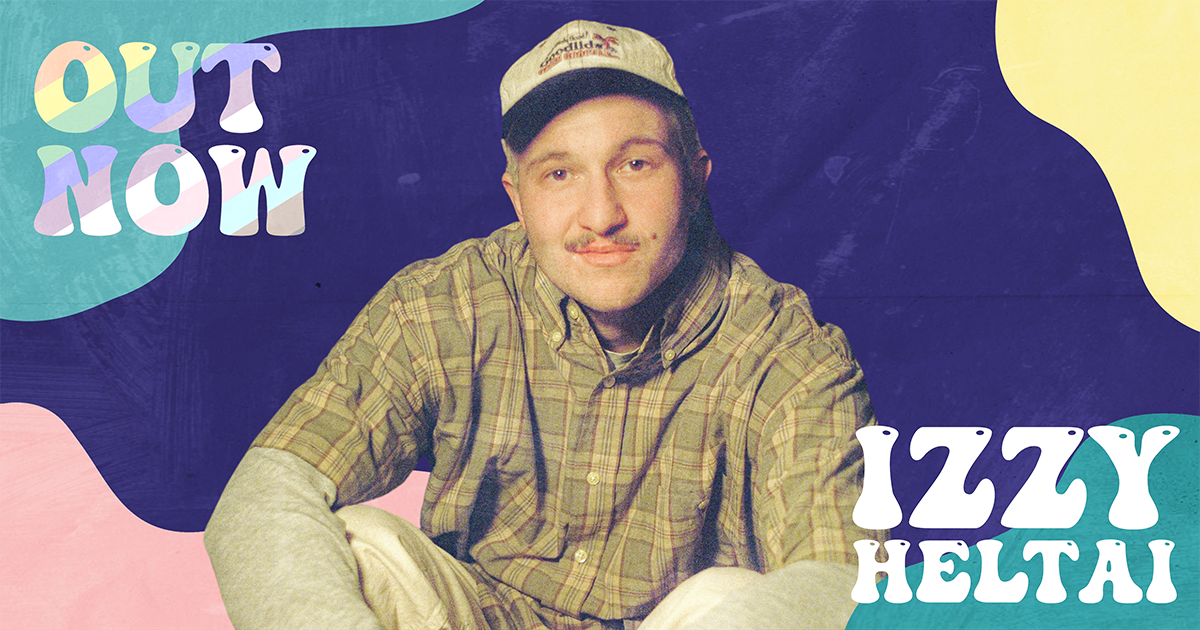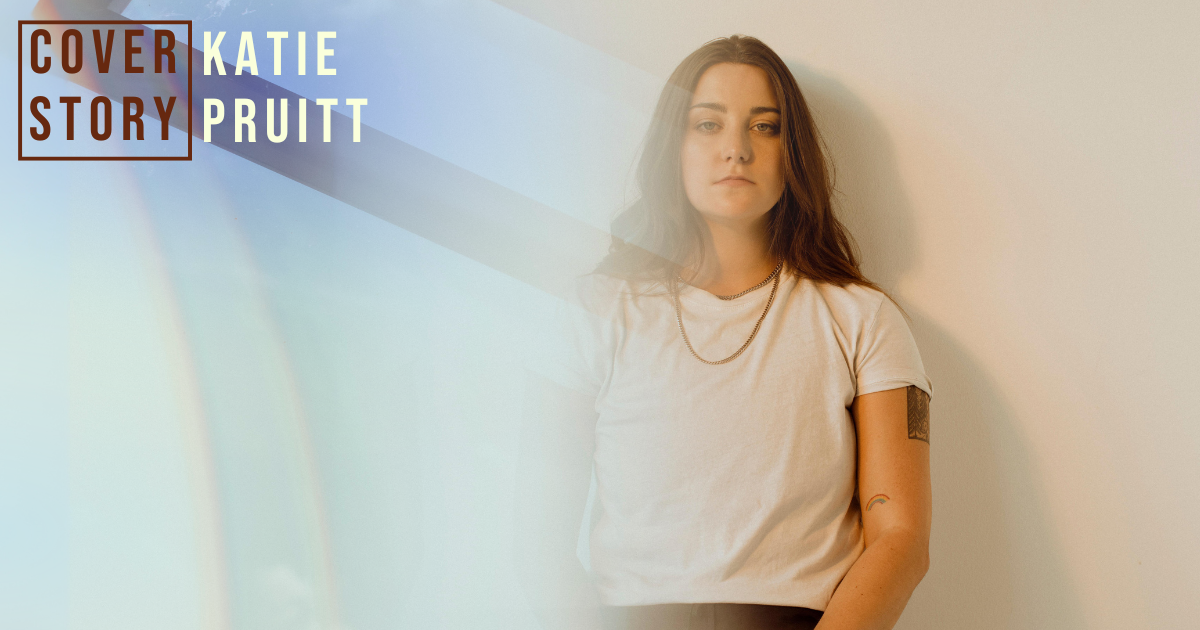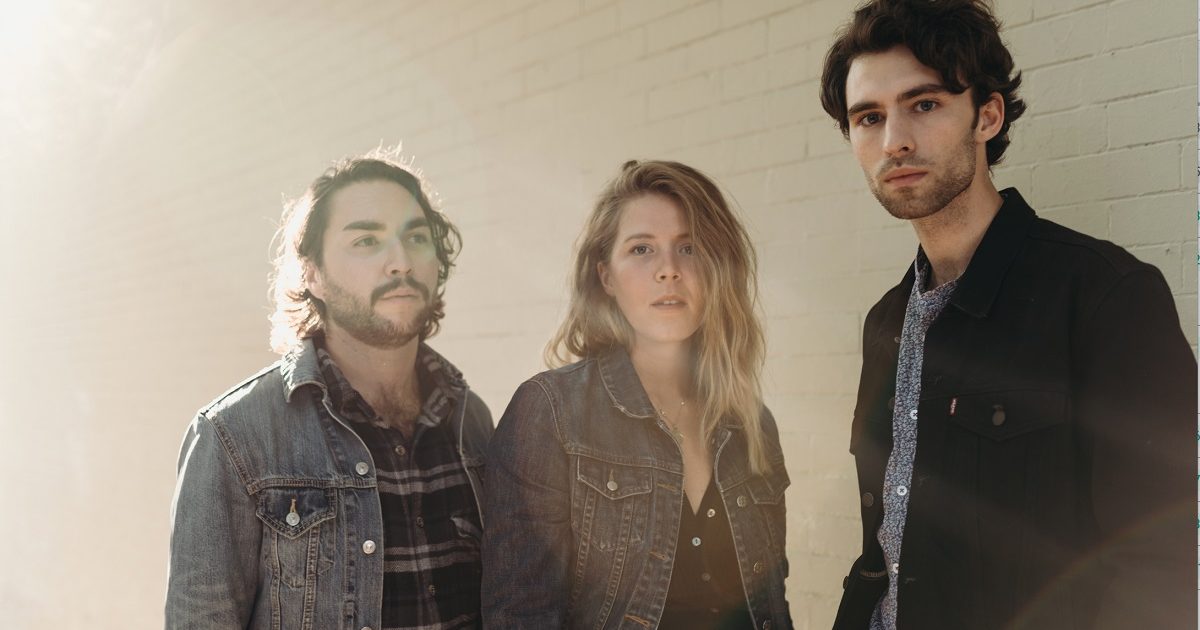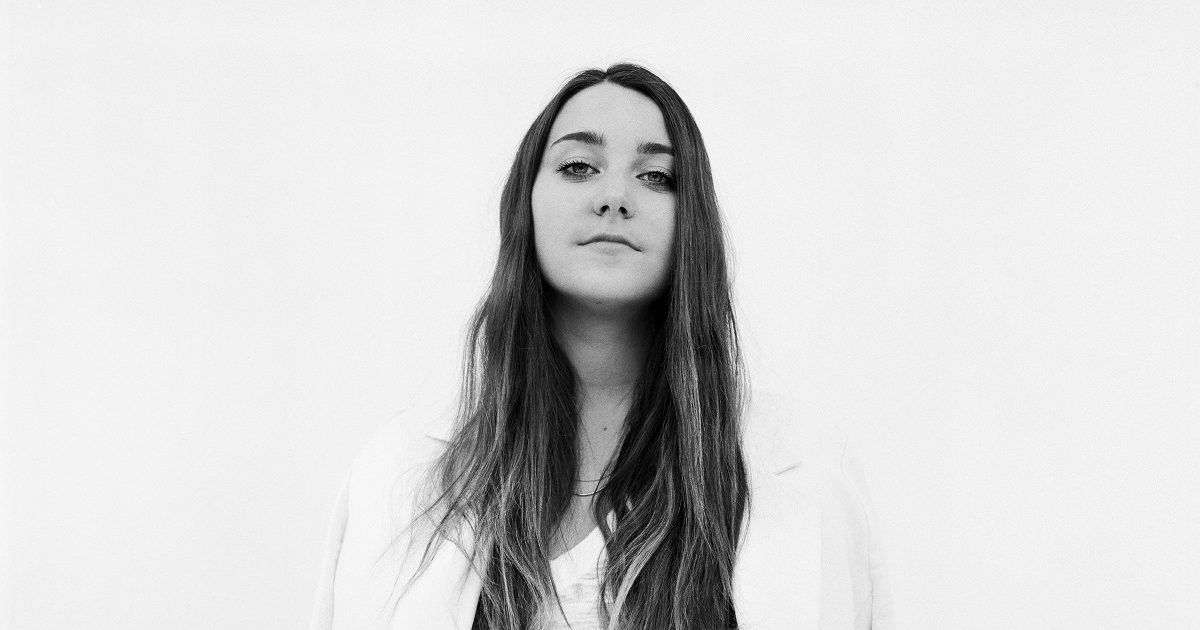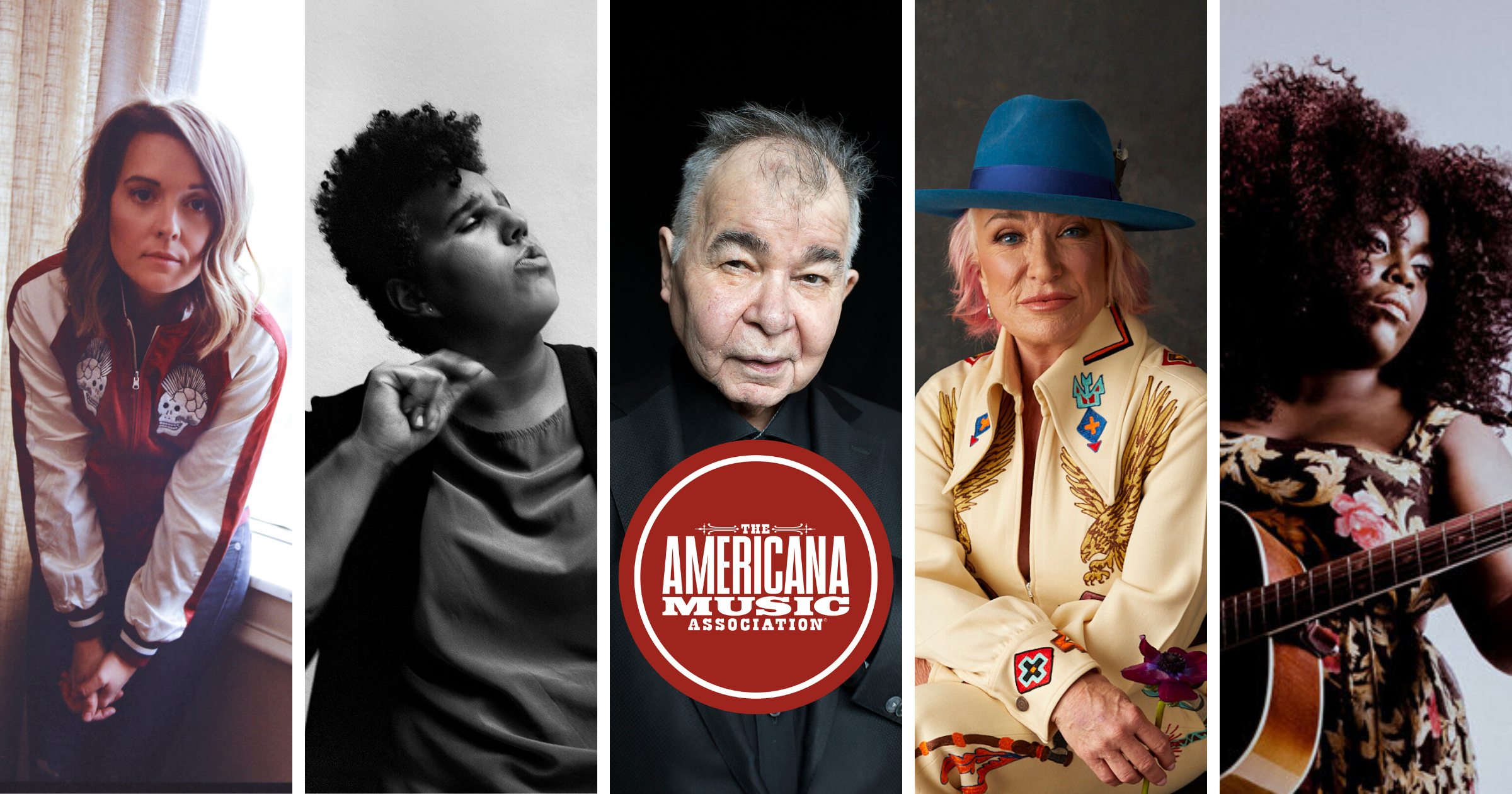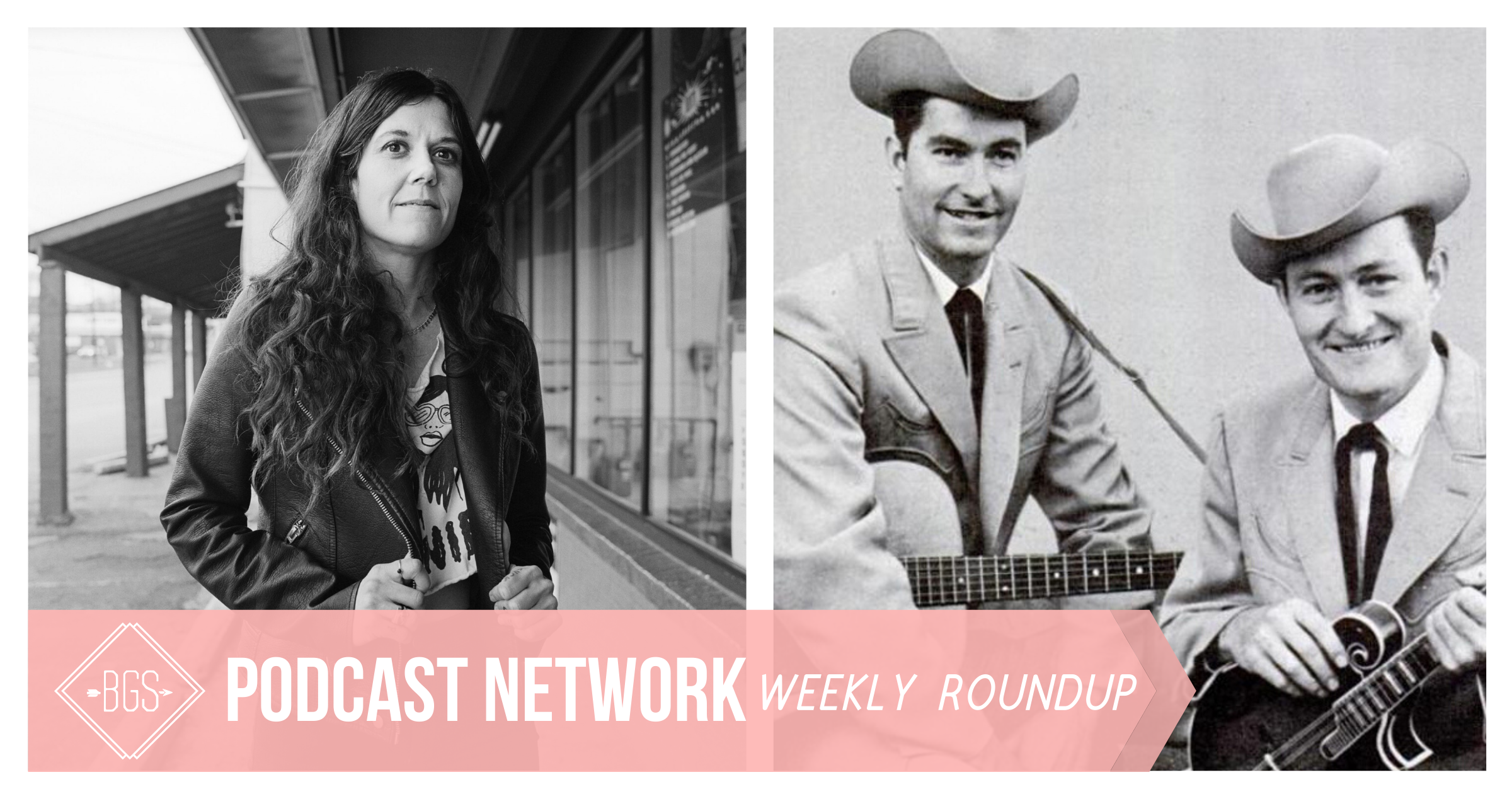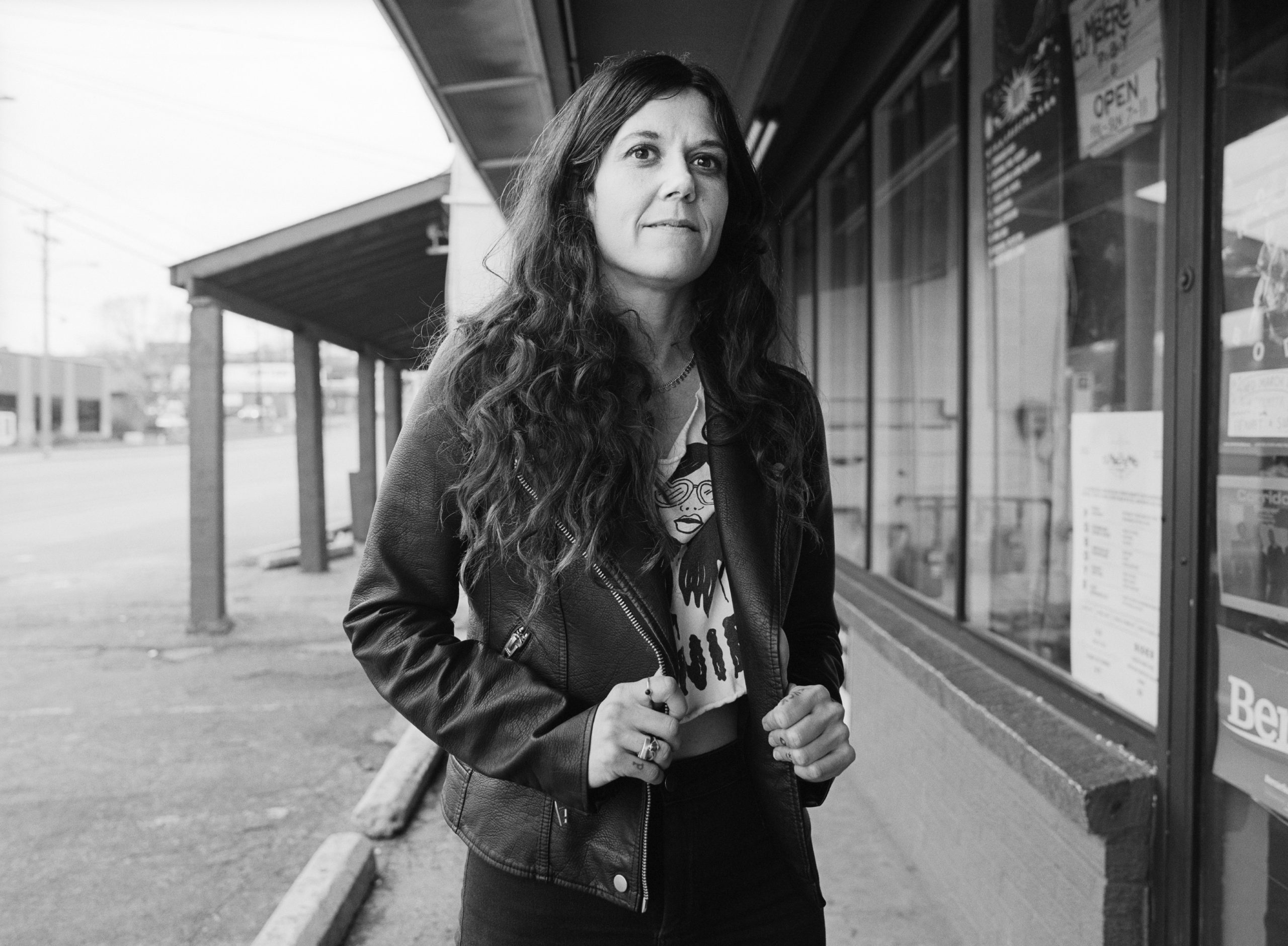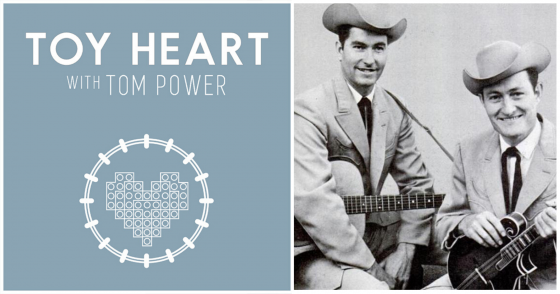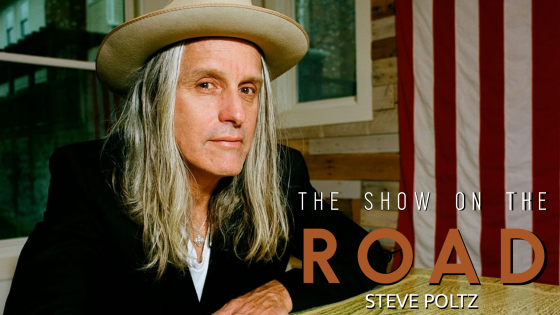Each year, when we begin the process of curating our year-end round-ups with our BGS and Good Country contributors, our prompt is never about superlatives or true “best of year” selections. We don’t strive to craft these lists based on “shoulds” – what record should be considered the best of the year? What should a list of the best bluegrass, old-time, Americana, and folk music include?
We perhaps couldn’t be less interested in such a list. Are they entertaining to read? Oh, yes. There’s almost no better year-end pastime than quickly scrolling through a “best of” list to find if you agree or disagree, or if your favorite album is included, or if your obvious choice is another’s glaring omission. But the beauty of music – especially these more traditional and folkway-adjacent forms – isn’t objectivity; it’s the intricately personal, particular, and subjective that’s hardest to capture.
Still, each year, as fall transitions to winter, we try our best to capture just that. In 2024, we tasked our BGS contributors with collecting their most favorite, most impactful, most resonant, and most persistent albums, songs, and performances. A quick Google search will reveal dozens of collections of the “most important” music of the year, but rather than wading into that very crowded space we hope our BGS Class of 2024 reflects the most ethereal, intangible, and fantastic music we encountered this year.
As such, our Class of 2024 has ended up with a lovely variety of albums and songs spanning the entire, expansive American roots music scene. You’ll hear picks like troubadours Willi Carlisle and Amythyst Kiah, there are straight-ahead grassers like Bronwyn Keith-Hynes, AJ Lee & Blue Summit, and Brenna MacMillan, and we’ve got buzzworthy acts like MJ Lenderman and Katie Gavin represented here, too. It’s not all bluegrass – it’s not any one thing, really! – but we hope you’ll find plenty to love and, hopefully, much exemplary roots music you might not have found anywhere else.
Scroll to find a playlist version of our BGS Class of 2024 below, plus stay tuned for more year-end collections coming your way, including our favorite musical moments, 2024 Good Country, our music book picks for the year, and more. – Justin Hiltner, editor, BGS and Good Country
Willi Carlisle, Critterland
I didn’t catch on to Willi Carlisle until this year, which might be because he’s only just beginning to garner more broad commercial success – or, if I’m being honest, it could be because I mistakenly assumed he was just another white guy with an acoustic guitar and a microphone. But I was wrong.
Carlisle is a rare storyteller, a poet, an openly queer man from the South, and one of the most meticulous folk songwriters releasing music right now. This year, he dropped his third full-length album, Critterland, underlining his status as all of the above and proving he can masterfully weave old-time, country, folk, and honky-tonk influences into a cohesive style all his own. Whether he’s singing about spiritual existentialism, rural queer experiences, or his many meandering journeys across the U.S., Carlisle’s lyricism is captivating, rich, and alive. If you haven’t already listened to Critterland, don’t let the year roll over without doing it. – Dana Yewbank
Jake Xerxes Fussell, When I Am Called
Jake Xerxes Fussell’s version of the work song “Gone to Hilo” on his 2024 album, When I Am Called, is gorgeous. It reveals part of how he revitalizes and contextualizes new folk songs. Fussell is a man of great learning, but he wears it loosely and with pleasure. “Hilo,” the song, has a number of versions – some are about Hawaii and some are about Peru (a town called Ihru). Some are about a sailor named Tommy, others are about someone named Johnny. Usually it’s Johnny in Hawaii and Tommy in Peru; Elijah Wald’s 2024 book about Muddy Waters suggests that it might not be Hilo or Ihru, but “the Hollow,” and could originate from the vernacular of enslaved people.
Fussell, playing live in Toronto, didn’t interpolate the Hollow, but in a perfect three minutes, traded lines and verses, sometimes about one place, sometimes about the other, in a delicate blending of received wisdom. The smartest and most moving moment highlighting what it means to make music that I heard this year. – Steacy Easton
Katie Gavin, What A Relief
For years now I’ve been making an incredibly silly joke about how “MUNA are my favorite bluegrass band.” With her first solo album, the group’s lead singer and central songwriter, Katie Gavin, brings their resplendent and queer musical universe decidedly into our roots music realms. Producer Tony Berg (Nickel Creek, Molly Tuttle, Amythyst Kiah, Andrew Bird) in the control room and Sara & Sean Watkins as session players are just two of the inputs that make What A Relief delightfully folky, fiddley, and string band-infused. MUNA’s acoustic set at the iconic Newport Folk Festival this summer – and Gavin’s totally solo, side stage Newport performance of much of this material – further solidified the dancey, club-ready group as a true folk ensemble.
At first it was a joke, but I don’t think it’s a joke anymore! Like all of Gavin’s work, these songs are both fun and gutting, poignant while light and convivial. What A Relief is a standout for 2024. – Justin Hiltner
Liv Greene, Deep Feeler
Liv Greene is a huge cry baby – and a liar. She even comes right out and admits it on the first line of her new album Deep Feeler:
“I’m aware I’m a liar. Always lying to myself about my expectations/ I’m aware I’m a crier, and I know. All this crying doesn’t help the situation…”
Greene, who is the Deep Feeler in question, has grown tremendously on her sophomore album. She’s become one of the most promising young artists to create songs that tap right into the center of your heart. This is enormously true on her 2024 album through songs like “Wild Geese,” “Flowers,” and “Made it Mine Too.” She attributes that growth to honestly writing about being queer for the first time. Deep Feeler crawls in and stays with you. Who knew honesty could feel this good? – Cindy Howes
Brittany Haas & Lena Jonsson, The Snake
On their second duo album of fiddle tunes (their first, self-titled collab dropped in 2015), Brittany Haas of Nashville and Lena Jonsson of Stockholm went even deeper into what’s possible in the blending of their native countries’ fiddle traditions. This time, they leaned far more on the Swedish end of the collaboration, emphasizing harmony over chord progressions, exploring the possibilities inherent in “second voice” dueting. They also tried their hand at writing a suite in the style of J.S. Bach – no small feat. The result is an utter delight for music geeks and casual fans alike, as folks can appreciate the languid lines and danceable moments they weave together throughout. – Kim Ruehl
Humbird, Right On
I remember where I was the first time I heard Siri Undlin sing, “There is an old barn on a ghost farm / Hollowed out and filled with stars…” the opening couplet of Humbird’s take-no-prisoners roots rocker “Cornfields and Roadkill.” I will reluctantly admit to some initial resentment that a songwriter who wasn’t me had written a song of such poetic efficiency and political potency. Undlin’s songwriting shines throughout the nine tracks of 2024’s Right On: the quiet earnestness of “Quickest Way” would have been at home on an early Kacey Musgraves album, and “Song for the Seeds” lays out both practical and spiritual methods for liberation, Farmer’s Almanac-style. But the palpable chemistry between musicians playing in a room together is the star of the show here. Humbird is an essential band to listen to as we watch the American empire crumble in real time. – Lizzie No
Katelyn Ingardia, “Silence”
This year, Katelyn Ingardia’s “Silence” got me feeling some type of way. I don’t know what they injected into this song, but I’m quite literally addicted to it. Bad day? I’m playing “Silence.” In a long line for coffee? I’m playing “Silence.” Cooking up girl dinner? I’m playing “Silence.” I scream a little on the inside every time I hear the fiddle kickoff.
The timbre of the song is so nostalgic of an early Union Station or Sierra Hull record, but Ingardia’s performance sets herself apart as something completely fresh and original. The writing, delivery, and production are all impeccable and her voice is like honey. And if all that wasn’t enough for ya, Ingardia just dropped her debut record, entitled Getaway. Some of my favorite tracks are “Lost Love” and “Talk to Me.” Y’all keep an eye on this gal as she continues to blossom into her career so we can all say we were here at the beginning. – Bluegrass Barbie
Cris Jacobs, One of These Days
Within the rock and jam realms, the name Cris Jacobs has been well-regarded and sought-out for many years, especially with his early project The Bridge, a vastly popular Baltimore-based rock ‘n’ soul ensemble up and down the Eastern Seaboard in the early 2000s, only to disband in 2011.
But, for the guitar wizard himself, it was Jacobs’ 2024 release, One of These Days, that really catapulted him into the national scene, especially in the Americana, bluegrass, and folk arenas. Produced by Jerry Douglas and featuring the Infamous Stringdusters as its backing band, the album includes appearances by Billy Strings, Lee Ann Womack, Sam Bush, and Lindsay Lou. At its core, One of These Days circles back to Jacobs’ early bluegrass, folk, and blues influences. But, more so, the record finally tells the rest of the world what a lot of us have already known for some time now – Cris Jacobs is one hell of a talented singer, songwriter, and musician. – Garret K. Woodward
Bronwyn Keith-Hynes, I Built A World
The longtime fiddler for Molly Tuttle & Golden Highway shows off captivating songwriting alongside her impeccable playing skills and impressive vocals on I Built A World, her first album in nearly four years. Featuring the likes of Tuttle, Sam Bush, Dierks Bentley, Brit Taylor, and her husband Jason Carter, the 11-song adventure from Keith-Hynes – up for Best Bluegrass Album at the 67th Annual GRAMMYs – follows her journey from being homeschooled to making a living as an independent musician on her own terms.
Standouts range from the frenetic, longing “Will You Ever Be Mine” to the waltz-like, Dobro-heavy “The Last Whippoorwill,” proving that Keith-Hynes is poised to be a power player in bluegrass and country music for years to come. – Matt Wickstrom
Amythyst Kiah, Still + Bright
The sparkling singer-songwriter Amythyst Kiah sought a different direction this year for her third solo LP. She’d previously shown her ability to deliver emotionally powerful, socially relevant, and poignant material. But she wanted her music to reflect other aspects of her personality in her latest work, both her warm and humorous side, plus her interest in Eastern philosophy and spirituality. All these things are nicely balanced in Still + Bright, with Butch Walker’s production touches incorporating unexpected musical contributions like nifty pedal steel licks or fuzztone guitar riffs, plus Kiah’s own supportive and inspired banjo colorations and edgy lead vocals.
It was a tour de force that was even more impressive in live performance, and Kiah got rave reviews throughout her tour that included highly appreciative responses from the crowds who saw her performances during Americanafest in Nashville. In addition, Kiah’s been part of Our Native Daughters (an all-women-of-color supergroup also featuring Rhiannon Giddens, Leyla McCalla, and Allison Russell). She extended her collaborative outreach on Still + Bright, working with such co-writers and features as punk legend Tim Armstrong, Sadler Vaden (a guitarist-vocalist for Jason Isbell’s 400 Unit), former Pentatonix member Avi Kaplan, and Sean McConnell (a singer-songwriter who’s also written with Brittney Spencer and Bethany Cosentino). All this reveals a dynamic artist willing to continue exploring new areas, while making some of the year’s most intriguing and exciting music. – Ron Wynn
AJ Lee & Blue Summit, City of Glass
In case you have any doubts about the absolute magnitude of AJ Lee & Blue Summit, I will personally fund your one-way ticket to this transparent metropolis. City of Glass presents precisely what its title suggests – an entire ecosphere generated from its contents. The 12 tracks on this album cultivate a moving array of sensibilities, from tender love ballads to humorous narratives to honeyed poetics to grade-A yodeling. Brimming with multi-hyphenate talents, AJ Lee, Sullivan Tuttle, and Scott Gates all contribute lead vocals and songwriting credits to the compilation. Jan Purat’s fiddling serves as a raconteur, always perfectly delivering each narrative. Tuttle’s sister, Molly, even makes the trip from her City of Gold to join in for a tune. All in all, this album is a wondrous sonic journey that anyone would be remiss not to make! – Oriana Mack
MJ Lenderman, Manning Fireworks
From Hurricane Helene-ravaged Asheville, North Carolina, singer-songwriter MJ Lenderman has always been more than solid in the field of twangy indie-rock. Nevertheless, he took a quantum leap forward this year with the spectacular Manning Fireworks album, especially the song that falls in the exact middle of the track list. “She’s Leaving You” is the heart of Manning Fireworks, with verses that sketch out a tawdry Las Vegas hookup. But the part that resonates is the chorus, sung by Lenderman in a raw voice that falls somewhere between deadpan and shellshocked: “It falls apart, we all got work to do/ It gets dark, we all got work to do…” Lenderman repeats the line a half-dozen times and you would, too. If ever a chorus summed up the exhausted anguish of a moment in time, it’s this one. – David Menconi
Brenna MacMillan, Dear Life
Bluegrass, as an industry, operates about a decade behind the curve. As such, it feels more than remarkable when you find a straight-ahead bluegrass artist who’s not only on the cutting edge, but may be the actual blade. Brenna MacMillan’s debut solo album, Dear Life, displays all of the ways this picker, songwriter, singer, content creator, and online personality is pushing the trad envelope and establishing new models for success in the genre. Bluegrass has always felt like a direct-to-consumer business, but never with this level of intention – or with such ease on new media and social media.
Dear Life is a gorgeous collection, filled with MacMillan’s Nashville community and several legends, too – like Ronnie McCoury, Peter Rowan, and Sarah Jarosz. It’s down-the-middle bluegrass, but it’s entirely fresh and unique, with engaging songwriting and often surprising contours and melodies. There are many exciting things about MacMillan’s artistry, but the music is the most entrancing of all. – Justin Hiltner
Andrew Marlin, Phthalo Blue
This quietly-released full-length instrumental album from Watchhouse’s Andrew Marlin was far and away the record I found myself returning to over and over again in 2024.
The name Phthalo Blue refers to the family of blue and green pigments most often used in painting (I had to look this up). At first I wondered why Andrew might choose a title so obscure and hard to pronounce, but the more time I spent digging into both the music and the color family, the more they took me to the same calming, centered place.
I have loved all of Andrew’s non-Watchhouse endeavors over the last few years – from his multiple 2021 releases to Mighty Poplar to his recent release, Wild Rose of Morning with Jordan Tice and Christian Sedelmyer. Hopefully he continues to deliver more of this prolific, purely creative output, seemingly unfettered by commercial expectations; simultaneously reverential to the instrumental traditions it pulls from and inherently perfect for our modern age. – Amy Reitnouer Jacobs
Middle Sattre, Tendencies
Middle Sattre are part of a movement of queer artists brewing down in Austin. Their brand of indie folk is as devastating as it is finely crafted. Tendencies is a painful autobiographical work, presenting vignettes of growing up queer and Mormon. The collective navigate these stories with care and delicate musicianship, building a portrait of sorrow – and a determination to survive. This kind of documentation, of people who stay true to themselves no matter the cost, are essential now more than ever. There is a deep and serious artistry in Tendencies, haunting, beautiful, and impossible to forget. – Rachel Cholst
Aoife O’Donovan, All My Friends
It was difficult to imagine what would follow Aoife O’Donovan’s Age of Apathy, her reflection on living through the pandemic. However, with All My Friends, O’Donovan shows how well her creativity and artistic style can thrive in new musical and lyrical territory. I love how this album includes guest artist, orchestral, and choral collaboration, making the music itself feel as grand and complex as the album’s themes: the women’s suffrage movement and one of its leading figures, Carrie Chapman Catt. O’Donovan’s wordplay is as sharp as ever and she doesn’t shy away from historical details or present-day truths, whether celebratory or sobering. The production and arrangements do everything possible to complement and enhance the impact of the songs, even if that means turning everything down to let the implications of O’Donovan’s words sink in. Be prepared to feel so much, but then want to start it all over again. – Kira Grunenberg
Katie Pruitt, Mantras
Katie Pruitt possesses a voice for the ages. In 2020, the powerhouse made an incredible splash with her debut album, Expectations, a raw and cosmic set that drowned out all others. Her songwriting pen proved to be as potent and razor-sharp as her vocal cords. Four years later, Pruitt still defines the soul-crushing Americana genre on her own terms. With Mantras, she expands her musical sensibilities and stretches her creative muscles in impressive ways. Such moments as “Jealous of the Boys” and “Blood Related” serve as needle-prick moments of sheer vulnerability, woven together with her signature mountain-rattling peaks (“All My Friends”). Pruitt pieces together a tattered photo book, one that gives a glimpse into her very soul. – Bee Delores
Photo Credit: Amythyst Kiah by Photography by Kevin & King; Katie Gavin by Alexa Viscius; Bronwyn Keith-Hynes by Alexa King Stone.
